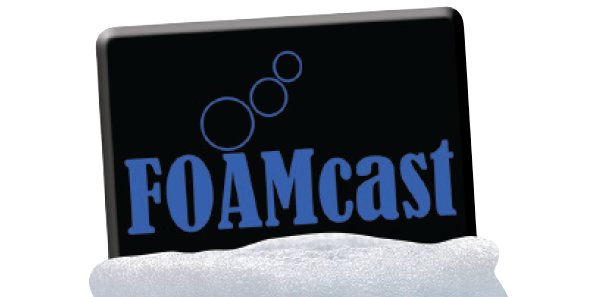
Finally, a talk about the growth of emergency medicine in Africa by Annet Alenyo Ngabirano, MD
Explore This Issue
ACEP Now: Vol 36 – No 08 – August 2017(@AAlenyo), an emergency medicine registrar at Stellenbosch University in CapeTown, South Africa, reminded us how we can learn from each other’s successes and failures. We were inspired by learning that, since the first emergency physician graduated from residency in Africa in 2007, nine out of 54 African nations now have emergency medicine programs. As such, the flow of information is becoming bidirectional. While we can be proud of what the field of emergency medicine has accomplished in the United States in the last few decades, it’s clear that, increasingly, we will have much to learn from the rest of the world as their programs mature and continue to spread.
Find FOAMcast on Twitter and Facebook @FOAMpodcast and at www.FOAMcast.org.
 Dr. Faust (@JeremyFaust) is a clinical instructor at Harvard Medical School and an attending physician in the department of emergency medicine at Brigham and Women’s Hospital, Boston, Massachusetts.
Dr. Faust (@JeremyFaust) is a clinical instructor at Harvard Medical School and an attending physician in the department of emergency medicine at Brigham and Women’s Hospital, Boston, Massachusetts.
 Dr. Westafer (@Lwestafer) is an attending physician and research fellow at Baystate Medical Center in Springfield, Massachusetts, and a clinical instructor at the University of Massachusetts Medical School in Worcester.
Dr. Westafer (@Lwestafer) is an attending physician and research fellow at Baystate Medical Center in Springfield, Massachusetts, and a clinical instructor at the University of Massachusetts Medical School in Worcester.
Reference
- Drolet BC. Text messaging and protected health information: what is permitted? JAMA. 2017;317(23):2369-2370.
Pages: 1 2 3 | Single Page



One Response to “Medical Texting Tips and SMACC Conference Pearls for Emergency Physicians”
September 5, 2017
Gabe WilsonEncrypted iMessages are more secure than any other means of communication.
Calling your consultant? Have you verified their identity? How do you really know that it’s your consultant that you are talking to? Are they using a cordless phone at home? Have you checked with them to be sure it is frequency hopping ad encrypted and can’t be intercepted? Are they on their cell phone? Have you checked that the signal is not being intercepted or that they are not being overheard?
Prescriptions like those from this article neglect to mention that HIPAA has little directive to say what protocols are required for a means of communication to be considered secure. The authors are holding texting to a completely different standard than any communication we have ever used.
Using a pager still? Have you verified no patient identifiers are being used and that the data is being transmitted securely? Despite paging still being the predominant means of communication in many areas of medicine, not a word about this in the article.
Secure iMessages and other secure encrypted texting compared with any other means of communication we use (unless you work for a government agency and have access to isolated secure rooms) are THE most HIPAA compliant means of communicating possible. More secure than phone calls, pages, and in-person exchanges that can be overheard.
We have to leave this academic space of holding these means of messaging to an entirely different – and artificial standard – compared with the “grandfathered” and still utilized means of communication that are far from HIPAA compliant but for some reason never questioned.
Texting is different and is much less secure – but these days most docs have iPhones or some secure messaging apps.
But as with any technology, secure texting has to be used carefully and thoughtfully. Typos can have significant implications so messages need to be double checked prior to sending, especially more so when clinicians are fatigued.
The bottom line is, what is best and most secure for the patient? You absolutely want patient identifiers on the ECG you are secure texting to the cardiologist. The worst thing possible would be for the cardiologist to think the EKG is for a different patient on her string of texts. Or for the orthopedist to mix up x-rays and give the wrong prescription for fracture care because the x-rays were not labeled with patient identifiers.